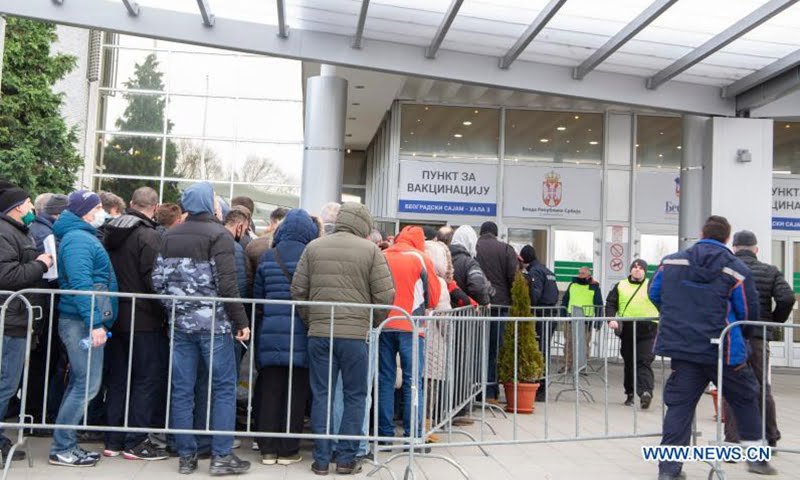
Serbia’s healthcare system is on the verge of collapse. Although the Balkan nation took one of the leading positions in Europe when it comes to the rate of vaccination against the novel coronavirus, hospitals are still full, the country lacks medical staff, and is facing a significant increase in deaths. Why is that happening?
By Nikola Mikovic
COVID-19 crisis has undoubtedly opened Pandora's box for Serbia’s health service, which was officially the worst in Europe in a pre-pandemic world. The country simply lacks medical staff. Over the years, Serbian authorities have been encouraging doctors, nurses and medical technicians to permanently leave the country and move to Germany.
German companies were allowed to openly lobby and recruit Serbian health workforce. Moreover, in 2013 the International Monetary Fund has demanded from the Government of Serbia to impose a hiring freeze on public sector workers, as well as a pay freeze.
As a result, many of the remaining medical personnel in the country that has being treated as a modern colony had to work two jobs. When the COVID-19 pandemic hit the Balkan nation, doctors and nurses faced with exhaustion and chronic fatigue. That is one of the reasons why dozens of them have died from coronavirus.
Due to lack of healthcare workers, as well as the growing number of patients with COVID-19 symptoms, many hospitals that treat oncology and cardiology patients had to switch to the COVID-system, leaving hundreds and thousands of people without basic health care.
Having said that the number of deaths in Serbia in 2020 recorded increase by 13,9 percent comparing to 2019. Not all of them have died of coronavirus, but because of COVID they could not get a proper medical treatment for other diseases they might have.
There are hopes that mass vaccination against COVID-19 will have a positive impact and will reduce the death rate. Indeed, over two million people in the country of seven million have so far received at least one shot.
Serbia is the only European nation where citizens can freely choose which vaccine they wish to receive – Pfizer-BioNTech, Oxford-Astrazeneca's, China’s Sinopharm and Russia’s Sputnik V. In addition, Belgrade has donated thousands of much-needed batches of vaccines to neighboring countries, and has even offered foreigners free coronavirus jabs. However, among the Serbs there is a drop-off in interest in vaccinations, and officials and doctors link it to an increasingly vocal anti-vaccine movement.
The authorities are sending mixed signals to the Serbian population. There are public calls for vaccination, and the government is actively promoting the immunization policy. At the same time, media close to the ruling Serbian Progressive Party often host anti-vaccine doctors.
In addition, mandatory mask wearing has become a norm a long time ago, yet the Serbian President Aleksandar Vucic is rarely seen wearing one. Since people usually watch the deeds, not the words, it is not surprising that the population feels confused and is showing a mistrust of COVID-19 vaccination program.
When the coronavirus crisis hit the Balkan country in March 2020, the government imposed a curfew, shut down businesses and imposed restrictions on the movement of people. Such draconian measures lasted for a month and a half.
Ever since, anti-covid measures were pretty liberal comparing to the rest of Europe, although the authorities periodically push for relatively soft lockdowns. It is believed that they are trying to balance between the interests of the economy – that is mostly dominated by various foreign corporations – and requests from the healthcare officials.
There are indications that Serbia is also trying to balance when it comes to foreign policy, although the country remains heavily dependent on the West. Still, the Western powers did not oppose Belgrade’s decision to purchase Russian and Chinese vaccines, which is why speculations of an alleged Serbia’s multi-vector foreign policy have occurred.
In reality, the nation will likely remain in the geopolitical orbit of the European Union and the United States, where Moscow and Beijing may have a small portion of influence. Such a position of a political object guarantees the status quo, which means that the healthcare system will unlikely improve any time soon.
Nikola Mikovic is a Serbian journalist and a senior Geopolitical Analyst he publishes often for The Levant News.





